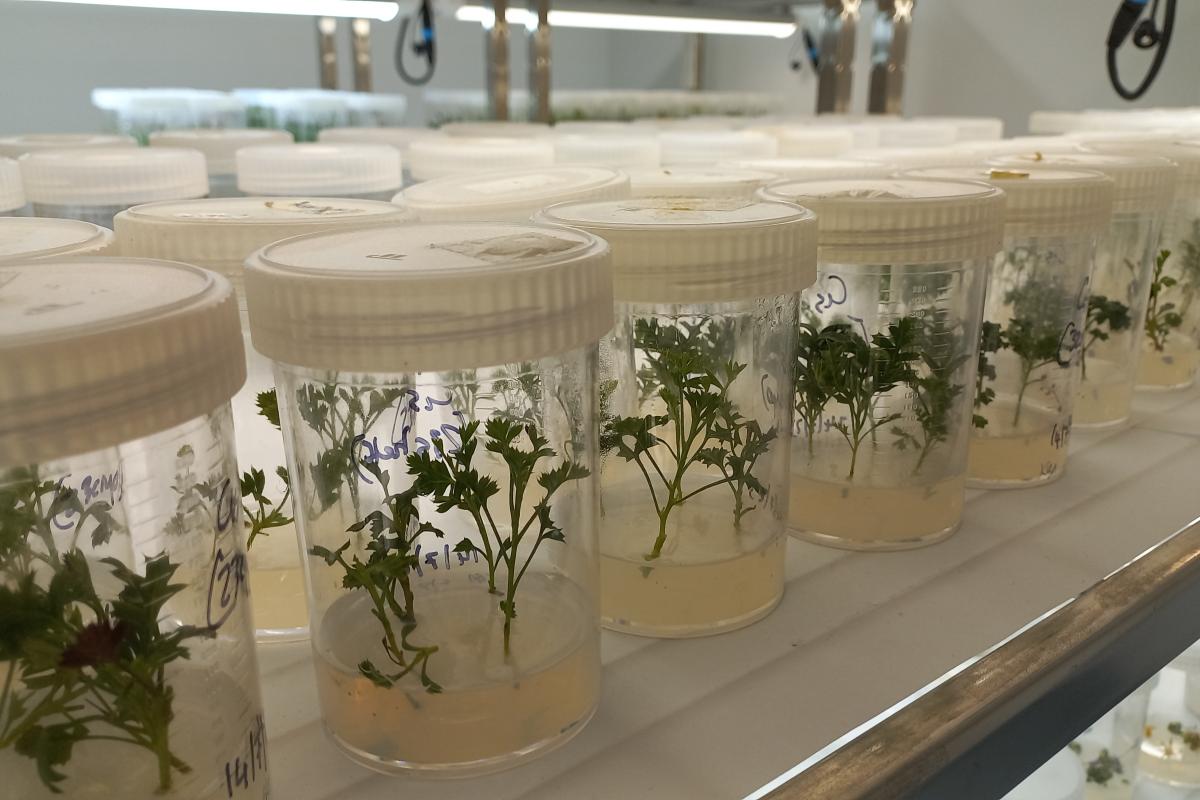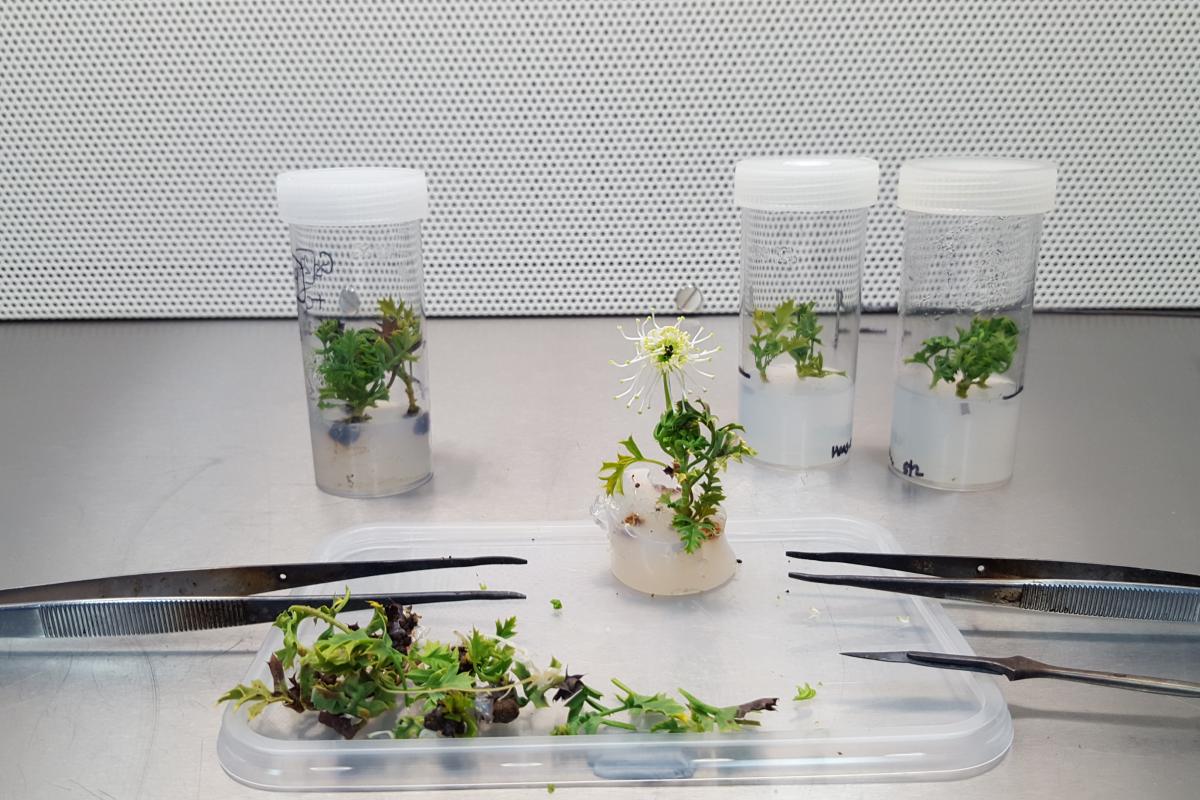Tissue culture and cryopreservation
Making clones and utilising sub-zero temperatures to preserve tissue, seeds and even pollen - it’s all in a day’s work for our tissue culture and cryopreservation scientists!
Kings Park Science is growing plant tissue and preserving it using below freezing temperatures in our lab to safeguard the future of some of Australia’s most threatened plants.
The Tissue Culture and Cryopreservation research programs enable Kings Park Science to take a different approach to plant conservation. Using plant material sourced from seeds or cuttings allow scientists to establish tissue (tissue culture) where it can be multiplied and used for conservation, research and horticultural purposes. Extremely cold temperatures are then utilised to provide long term storage for Threatened Species as part of the cryopreservation program. These cultures can then be re-warmed for use as needed.
Did you know?
Kings Park Science has over 50 different plant species in tissue culture for conservation and research purposes, with 36 of these listed as Threatened Species.
Some collections are initiated from the last remaining plants left in the wild to conserve their genetic diversity. The Plant Development tissue culture research program has been able to develop 15 new hybrid species for display in Kings Park and Botanic Garden.
Kings Park Science has cryopreserved (frozen) 44 species from the tissue culture collection, which will be warmed and grown as needed in the future.
Tissue culture: from little things big things grow
Kings Park’s Tissue Culture research program is focused on conserving Threatened Western Australian plant species. Tissue culture is initiated from seeds and cuttings, and growing these plants in petri dishes or sterile jars using an artificial media. The plant stock material can then be multiplied (micropropagation), before being transferred back into soil for returning to the wild. Through careful selection of material to clone the greatest genetic diversity can be captured to best conserve Threatened Species and ultimately bolster the wild population.
Kings Park Science aims to develop new tissue culture protocols for unique plant species found in Western Australia, with a focus on understanding the optimal growth requirements for Australian species.
Cryopreservation: frozen in time to protect the future
Once cloned through the Tissue Culture research program, plants are then cryopreserved, which involves storing the samples at very low temperatures in liquid nitrogen (-196°C)! When stored correctly we can preserve valuable collections at this extreme temperature for many decades without damaging them, and they remain exceptionally stable.
Cryopreservation can be applied to a wide range of plant material, including seeds, tissue cultured material, reproductive material such as pollen, and even plant cuttings. However, special techniques are needed to protect the plants at these very low temperature, using a range of chemicals that protect the cells from potentially damaging ice crystals.
In addition to our tissue culture collection, Kings Park Science utilises cryostorage to conserve rare plants like orchids and their associated mycorrhizal fungi where their seeds may degrade if stored in our seedbank. Our scientists continue to develop new cryopreservation protocols with a special interest in researching what happens to the plants, and how they survive the stress they experience during the different stages of cryopreservation process.


